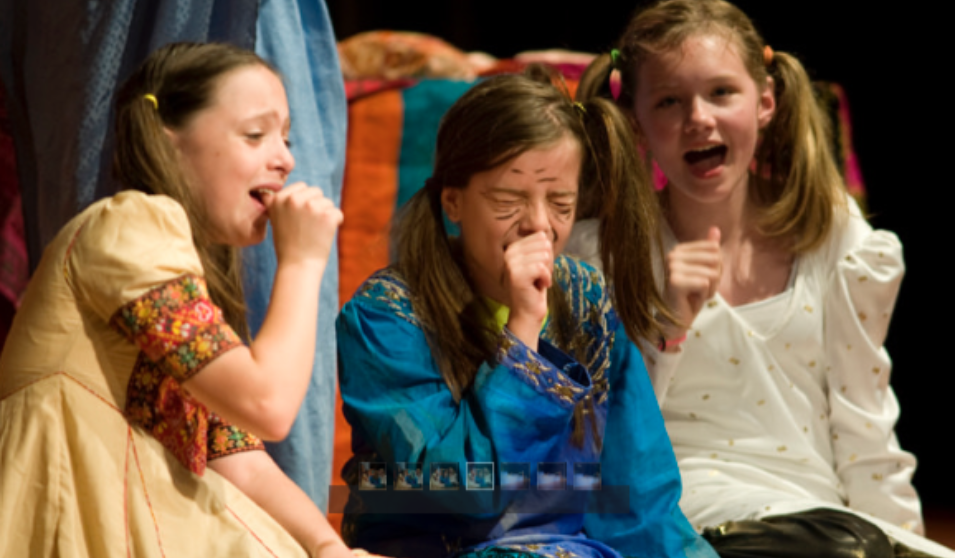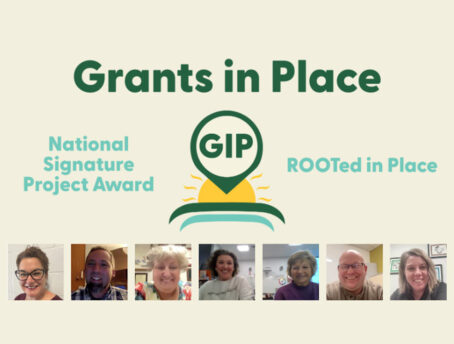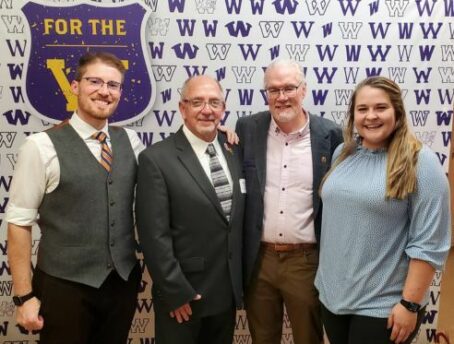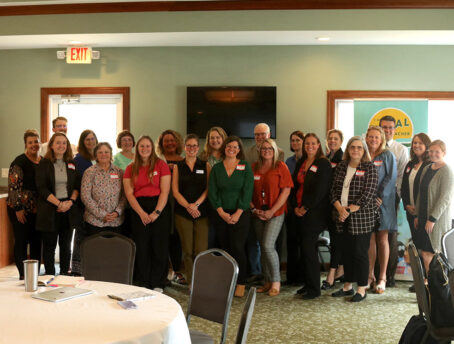The story of western Illinois’ ROWVA school district mirrors the evolution of America’s rural schools. Until 1949, the villages of Rio, Oneida, Victoria and Altona had their own independent school districts. After World War II, though, paved roads, better busses, farm consolidation, and the “modern” school model resulted in scores of school consolidations; these four neighbors followed suit, adding the hamlet of Wataga in 1989. Initially, the various school buildings in their respective locations were kept open as elementary schools, intermediate centers, or such, but over time the concept of one campus seemed sensible, and the entire K-12 system was eventually located in the centrally situated Oneida. This is how it stands today.
While there may have been some consternation through the years, this consolidation partnership, like other voluntary school consolidations in Illinois, worked reasonably well. But it would not be without challenges. Rural population decline, state tax struggles, and the costs of purchasing and maintaining new technology put funding pressures on the strongest of rural schools. ROWVA was no exception, and in 1999 local school advocates established the ROWVA Public Schools Foundation in hopes of helping the district keep up. According to Foundation volunteer, Pat Turner, the original intent was to fund “technology needs and unfunded mandates from the state.”
Pat Turner knows a thing or two about the history of rural schools. Born in Industry, Illinois (pop. 540), near Macomb, Pat and her family moved to Rio (pop. 240) in 1956 when she was ten years old. Since that time she grew up, attended local schools, taught, raised a family (synonymous with “attending ballgames,” she laughed), served as a principal in the ROWVA district, and, subsequently, retired. Now she volunteers on the foundation board of directors. Well, it is more than that. Karlie Bowman, Galesburg Community Foundation communications director, claims that, for all intents and purposes, Pat is the ROWVA School Foundation’s “staff person.”
Pat’s experiences as a parent, teacher, and administrator give her a unique perspective on what a school foundation can mean to a rural school district. What started as a way to buy computers has become a more comprehensive effort to strengthen the overall education experience and build community. Relying primarily on an annual auction, the ROWVA Public Schools Foundation has been raising more than $30,000 annually for teacher mini-grants, arts programming, community grants, and scholarships.
“We have funded a marine lab, school supplies backpack programs for Altona, Victoria, and Wataga, an annual drama performance at the school, and a summer reading effort at the Altona Public Library,” said Pat, who is also proud of the Foundation’s sense of place. “There was a survey that discovered that 75% of our students had never been fishing, and here we live in an area that has plenty of good places to fish. So we funded a program that bought fishing poles and bait, paid for bus transportation, and took kids to Little John [a local lake], learning how to fish.”
Still, even with all of the tangible accomplishments, Pat and her foundation board colleagues saw the need to take the organization to another level. “We had no real plan,” she admitted. “Not to grow or to reach out to people.”
Enter the Galesburg Community Foundation (GCF), which serves ROWVA’s home Knox County. GCF, with an asset base of approximately $27 million, provides an array of services to nonprofits. Recently, its board of directors made rural outreach an integral part of the GCF development plan, focusing on the region’s small towns, their nonprofits, and rural donors.
ROVWA has taken full advantage of the GCF opportunities. First, they participated in GCF’s Certificate in Nonprofit Governance program. This four-day course covers board and staff responsibilities that include fiduciary, legal, governance, communications, and succession planning issues. Now, ROWVA is part of an endowment building initiative where they receive technical assistance, marketing funding, and a dollar for dollar $10,000 challenge grant match. After an initial fund raising workshop with other challenge grant participants, the GCF program enables ROWVA to continue to work with Peoria (IL)-based consultant, Nathan Ruby (Ruby and Associates), as the board moves toward successfully completing its fund raising goal.
The experience has been positive. “Our foundation board meeting this past week was the most animated that I have ever seen,” Pat commented. And the enthusiasm doesn’t end with the board—the school administration, essential to successful school-based philanthropy, is very supportive. “Joe Somberger, the school superintendent, is fully engaged,” added GCF’s Bowman.
Turner, Ruby, and Bowman are all confident that the ROWVA School Foundation will successfully reach its $10,000 endowment building fund raising goal. However, the key will be to what degree the organization can build on this success. A collaborative planned giving campaign would be a logical next step. “I am not aware of any estate gifts,” Pat said, “but we have suspicions that there are some out there.”
Pat Turner’s hunch might be right. There may be planned gifts in the works for the ROWVA Public Schools Foundation, and we will take the bet that there will be down the road. In fact, not only will future generations of ROWVA students benefit from the school foundation’s progressive partnership with the Galesburg Community Foundation, but their shared work also provides a template for other area rural school partnerships in the future.
All bets aside, we know that Pat Turner will keep plugging away at building her community’s school foundation. But what else would you expect from a person whose hometown is named Industry.
(From Left to Right: Nathan Ruby, Karlie Bowman, and Pat Turner visit on the progress of the ROWVA Public Schools Foundation at the Galesburg Community Foundation.)
The Rural Schools Collaborative believes strongly in the potential for public school foundations to strengthen schools and enhance community. Read here for suggestions on how to start and develop a school foundation, and please contact us if we can be of assistance at any stage of school foundation development.




